When we wrote about how an Illegal Octopus Tour Became Among Most Popular/Profitable Hawaii Activities, we started hearing from you with questions on another top Hawaii activity, the Seahorse Farm, located in Kona. You asked and we said we would check it out.
The Seahorse Farm on the Big Island allows visitors to interact with seahorses raised in captivity to be sold as pets in aquariums. Started in 1998, they offer three daily tours for $75 per person. The farm now raises more than 25 species of seahorses with the purpose of tours and of selling them to the aquarium industry. Their mission is to prevent wild seahorses from being collected for that purpose. It isn’t clear whether or not they also release captive seahorses back into the wild.
Hawaii DLNR Aquatic Division.
We inquired about the seahorse farm with the state Department of Land and Natural Resources. And here’s what we learned.
Seahorses are not a regulated species in Hawaii and don’t currently come under DLNR. In contrast, the day octopuses at the Kanaloa Octopus Farm are regulated. If seahorses were to become regulated, that would only occur due to a bill in the state legislature or through comments or complaints to DLNR.
Concerns about the seahorse farm came to us like this.
It started with this question from D.R., who asked:
“So we just left the Big Island, and on our last day, we went to the Seahorse farm…like some of the reviewers for the octopus farm, we felt honored to have these majestic creatures interact with us. I almost cried, to be honest. But now, on my plane back to the mainland, I am reading this. Please let me know if they are practicing safe protocols. If they are not I will be very disappointed in the company. My husband said there were a few things said about breeding the seahorses that seemed ‘off.'”
Rachel wrote saying, “We recently visited the seahorse farm on BI. While my 5-year-old daughter loved it, I was skeptical. The tour guide said the top reasons for seahorse endangerment are climate change, overfishing, and the pet industry. Yet they are raising the seahorses to be sent off as pets to people. It had me raising an eyebrow, and left with an uneasy feeling.
Rene wrote in support of the seahorse farm, “Aquaculture takes very few animals from the wild compared to wildlife traffickers which take literally hundreds of thousands every year. Aquacultured seahorses can live for over 14 years, nearly 10 years longer than seahorses in the wild. They are born in captivity and well-adjusted to captivity. Here, aquaculture is literally saving hundreds of thousands of seahorses every year.”
That was followed by Kelly, who asked, “I am curious how this is any different than the seahorse farm on the Big Island? As cool as it was to see seahorses there, I’m pretty sure they, too, would be happier in their natural environment.”
Eldo commented: “OK. Let me understand your argument here. The sea horse farm is OK with you because it catches, breeds, domesticates, and then sells sea horses to aquarium hobbyists. The other guys that “poach” seahorses and then sell them to aquarium hobbyists are not OK. Please explain the difference in terms of the ultimate outcome, which is that seahorses are removed from their natural sea habitat and end up swimming up and down a small glass cage…”Well-adjusted” seahorses? How is that measured exactly? “Literally” saving hundreds of thousands of seahorses “every year?’ How was that number arrived upon, pray tell – is there a worldwide seahorse tracking system and database? And I wonder what the survival rate of these poor seahorses that are sold to the public actually is. Did you know that barely 50% of the tropical fish shipped to hobbyist pet stores across the USA actually survive to their final destination? A mortality rate of 50% is hardly laudable. Just saying…
And Ken said, “It’s really not worth the money. Nice idea but probably a $15-20 tour and not $75 for sure. I understand the tanks take time and money. They make money selling seahorses to aquarists and gift shops and donations. Holding a seahorse is not what you think.”
A final word from PETA (People for the Ethical Treatments of Animals).
We asked PETA to provide any input that had or knew about seahorse farming. We heard back from them with this:
“This business is gross exploitation, and it’s summed up here (using words from the Seahorse Farm website): ‘Farm Raised Seahorses and Marine Life for Personal and Commercial Aquariums’ and ‘Hold A Seahorse Today!’ Seahorses belong in the ocean, not in cramped tanks or being groped by the public. The business exists to breed and exploit sealife for profit. It doesn’t get less ethical than that.”
Your comments are appreciated.
Get Breaking Hawaii Travel News
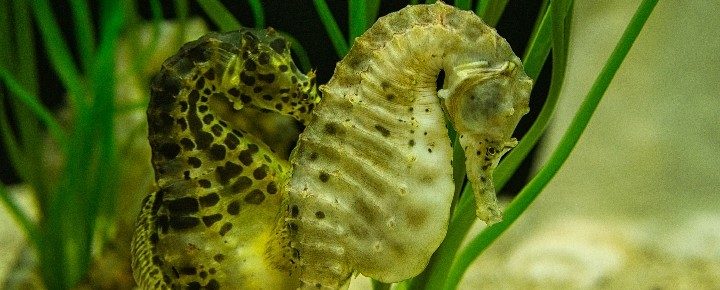
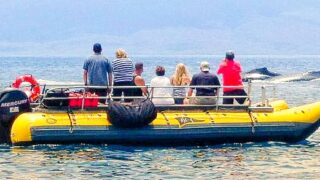
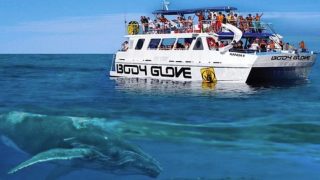
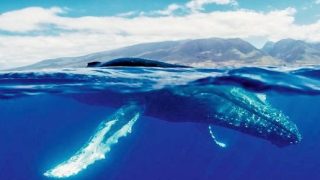

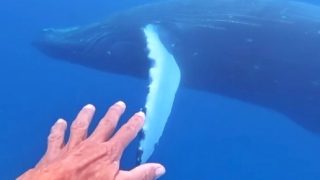
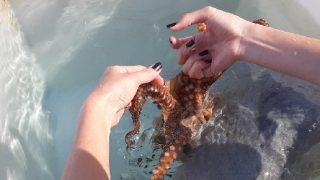
This was very informative as we are looking for unusual things to do while on vacation.
I cannot support a facility that exploits living things so we ruled this one out. Perhaps another time should they change their ideals. Thank-you for sharing this information.
I was one of your original commenters. Thank you for looking into and writing about this further. I would really like to read some input from credible resources, such as marine biologists and ocean scientists. PETA is biased and of course is going to say what we all expect. I want to believe that the seahorse farm is raising seahorses for pets to prevent/discourage the poaching of wild seahorses, and to increase their lifespan in captivity. But I have to wonder just how humane and legit the farm’s breeding practices are, and just how long they live in captivity, especially if the business is for profit.
On the bright side, our visit really did perk my daughter’s interest in learning about seahorses.
Mahalo.
It’s not a “horse” people. No different then fish in an aquarium.
Mahalo Beat of Hawaii for your awesome reporting!
Personally speaking, I think it’s disgusting to allow this to continue.
Just because something isn’t endangered yet, doesn’t mean it’s fair game.
How do people think endangered species become endangered???
(Sorry, I once again put the word “think” and “people” in the same sentence.)
Keep up the awesome work.
You’re my heroes.
Aloha and blessings always 🌺
Hi Pam.
Thanks! Great to here from you. How are you feeling?
Aloha.
I think it interesting that you write an article on a seahorse place but don’t actually include any comment from the business. I visited years ago and what was shared is that it was started for concern of the seahorses in the wold and the intent was to create a ‘bank’ of safe keeping for the many species of seahorse that are being impacted by the multiple man made issues listed in your article. Perhaps including who the article is about would improve presenting the multiple perspectives on this business.
I don’t think there’s anything more magical found in the ocean than a tiny seahorse. Every 4 yr old’s dream of riding one. Lol. But do I need to hold one? No. I remember souvenir shops with dried seahorses on top of a pile of shells. Ok, they may live 3 or 4 years longer in captivity. How do we really know that? I think it’s wrong to keep them in tanks. What about diseases? People carry all sorts of germs and bacteria on their hands. Can these poor little things truly be safe? They belong in their natural habitat. So where’s the proof that they could “theoretically” be released back into the wild unscathed? Can they hunt for their own food if back in the ocean? Also, I think that charging $75 per person is highway robbery.
I went to it many years ago, as well, and while some of this article does make me consider the entire situation with a perspective I hadn’t quite thought about before. I was more or less convinced by their mission despite understanding they were a for-profit company, as opposed to a non-profit organization. I understood their position in using capitalism to try and solve a problem. They seemed like good people to me and didn’t seem like a terribly big company either, more like they had found a way to make just enough money to continue while trying to provide an alternative to just scooping them up out of the water by the thousands. That definitely did not seem sustainable. I don’t like to think about a lot of them not making it to their des
tination. That’s a little depressing and should be made better. I don’t have a problem with this line of work being regulated and I would hope the Farm wouldn’t either.
I totally respect PETA’s position and statement. From their perspective, I think they equate both the farming and the mass scooping up as basically the same. That we should basically spend energy only on stopping illegal and unsustainable collection first and foremost instead of clever ideas.
I also think, though, that they are waging a different battle, too, and that’s one of winning the hearts and minds of people through education and outreach. I still consider it an absolute highlight of my life and it changed me as a person. I fell in love with seahorses and continue
Horrifying! These fragile creatures need their natural marine environment which supports them. I don’t imagine we would see many thriving live seaweeds in home use! They are not pets for us to dominate. They are, as their name says, horses of the sea!
I visited this farm years ago and very much enjoyed the tour. I don’t think the seahorses are being exploited. It is a fascinating creature and farm and I highly recommend this tour.
PETA said it best!!!
The sea horse farm is a good thing. Not taking fish from the wild is a great thing. It also protects the species from not serving
Get a life !!!
Are you speaking to the poor Seahorses?
We once visited the Sea Horse farm once and enjoyed it, though it was pricey. I notice one important fact is missing from this post and that is wild seahorses only eat live food, farm raised eat dead food. Thus, captured wild seahorses die of starvation in captivity.
From Seahorse.org:
“Seahorses are ambush predators, feeding primarily on crustaceans, mostly shrimp. In their wild state, most seahorses only eat live food. In our aquariums, Wild Caught specimens often don’t recognize many food items offer that are not from their natural environment. This includes dead food, which they just don’t see as food unless trained to make the switch.
Captive reared seahorse, on the other hand, are almost always willing to accept frozen.”
For years I had a large saltwater aquarium in my home. While I never raised seahorses, I would much rather buy a farm raised fish than those that are wild caught for a number of reasons. The main reason is that farm raised fish are much better adjusted to life in an aquarium than wild caught fish.
I am the original comment quoted above that was asking about the Seahorse Farm.
We were told at the farm that they were saving seahorses lives but when they described how they have changed the natural mating from seahorses mate for life to now they have them mate with multiple seahorse’s for breeding and then that the company was against aquariums but then when asked they said we only sell to legit aquariums with ethical practices we were confused. My husband and I came out of there not feeling well about the animals. Then when we saw your article at the airport I felt terrible about the octopus. We only went to Ocean Riders because it was advertised on a few travel sites and a few youtubers videos and we foolishly thought we were helping.
Big surprise that PETA (which to me means People Eating Tasty Animals, not what they think it means) doesn’t like this. Not my first choice of outfit to go to for comments.
If this farm was a nonprofit seahorse farm set up for educational and research purposes to help fight poaching then that would be more ethical. However, this farm seems to be for profit only. So I’d have to say that places like this should be regulated.
The same people who are whining about this are probably carnivores.
Poor little cattle and other proteins do not spend their natural lives in a wonderful environment.
So going to PETA for a comment helps this argument how?
Never could quite part with $75 for the tour, but I really do not do tours anyway.
HMMM. Why is raising seahorses any different from farming fish on the endangered species list, or raising shrimp or any other spieces for eating. Not advocating eating seahorses, but it would seem that there life in an aquarium is better than possible death at the hands of poachers. Just saying.